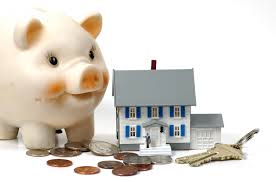How to Select a Mortgage Broker
Why is a mortgage broker important? The American home has traditionally been a wealth builder and often the family’s greatest asset. Its mortgage is relevant for years into the future and impacts the ultimate price you pay for your home.
A mortgage broker is a mortgage expert. Under the SAFE Mortgage Licensing Act of 2008, he must pass rigid exams. He is not a bank employee offering you the loan options of one bank only. Rather, he is a licensed professional who represents the loan portfolios of all the financial organizations with which he is affiliated. Divita Home Finance, for example, has liaisons with over 40 banking institutions. A broker’s job is to sort through a variety of loans and based on your finances and goals, present appropriate mortgages from which you may make a selection, a loan you can live with.
Questions to Help You Choose
- How long has the broker been in business?
It takes years to master the mortgage business and diligence to keep abreast of its ever changing regulations and loan products. The recent real estate bubble narrowed the broker pool in a good way. Those who weathered it are likely qualified prospective candidates.
- Does the broker have a good reputation?
Check online if the broker has had any licensing issues with the California Bureau of Real Estate with which he is licensed. Verify there are no complaints with the Better Business Bureau. A broker is charged with finding the best mortgage for you and since it will likely govern your monthly budget for 25 or 30 years, his integrity is a “must.”
- Does the broker express himself clearly?
A mortgage is complicated. The broker must explain it in plain and transparent terms which you understand fully before committing. Will the broker handle your loan himself and return your calls ASAP? Time is of the essence because escrow has a scheduled closing date. As gracious as he may be, he is also your advocate who pulls no punches when it comes to getting documents approved. He has the right balance only learned from years of experience. A seasoned broker knows the banks’ guidelines. He reviews your paperwork before submission and often clears up sticky credit issues which slow the process.
- How does the broker safeguard your financials?
Are your files encrypted? Are your records cloud based?
- How much is the broker’s fee and how is it paid?
Usually the fee is paid by the lender and is the same as you would pay the lender. It is a percentage of the loan amount. If paid by you, it can be incorporated into the loan or paid by check. In either case, get this information up front.
If you are confident you and your broker have a good working relationship, it is now his job to ask you a lot of questions. Be brutally honest. Provide documents timely. Both will enable him to will target your options and shorten the process. The loan will then fund, escrow will close and you will move into your new home.
Additional Questions
- What is the interest rate and APR?
Interest rates vary daily in small increments, but they account for sizably differences over the term of the loan. The APR is a complicated formula (mandated and devised by the government, not your broker) to help you compare the true cost of loans of differing rates, points and fees. It is usually higher than your interest rate, but does not mean your interest rate has changed. Your broker will send you within 3 business days of applying for a loan a ”good faith estimate” and “truth in lending statement” which quote rate and APR. Is it economical for you to pay points to lower the interest rate? That depends upon the length of your loan or how long you reasonably expect to stay in the home. To make a decision on this option, ask your broker to compute it in real dollars.
- Will your broker lock-in your rate?
What are the advantages? Ask for a copy of the lender’s commitment letter.
- Is there a prepayment penalty?
When does it apply? Ask about its implications.
- What is mortgage insurance?
FHA loans are especially important to first time home buyers because their down payment requirement is lower than other loans. However, you must pay mortgage insurance. How much is it? Does the cost justify the advantages? Again, ask your broker to break down these numbers into real dollars.
- How much are closing costs?
Ask for an estimate of closing costs including lender origination fees. The figure will be close, not exact, because third parties fees such as title insurance are subject to change. Your broker will shop for the best deals for you.
For answers to these tough questions and more of your own, call us Mike at 1 (800) 239 1103 or email Mike@mycahomeloan.com.


